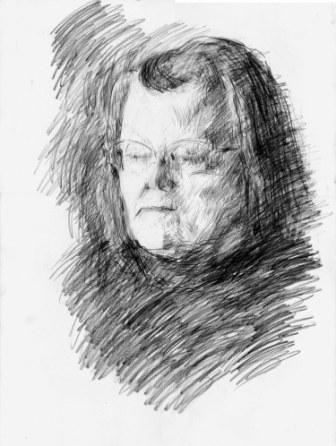Works of theology are by their nature general, abstract. I’ve been trying to marry the abstract to the particular, to my actual experience of what, for want of a better word I will call Presence. I believe that the religious--perhaps the term should be mystical—intimations have contributed to my reverence for life. My friend Ted Colson tells me that he believes that reverence for beauty is what constitutes the concept “God.” He says, “I see beauty almost everywhere and sense that the whole world is connected so. God’s ‘justification’ of himself to Job is aesthetic.” I have a hunch that is only part of the complexity. To write for anyone else about the Presence, I had to decide whether to capitalize the word and whether the entity is an “it” or the generic “he.” Like the word God, it certainly has no gender or physical body. In this regard it is akin to “love” or to “soul.” I decided to capitalize the word to distinguish it from other uses of presence.
When I was young, the Presence appeared in the natural world. Later I connected the Presence with the holy comforter and with love because it appeared in association with loved ones. “But now faith, hope, love, abide these three; but the greatest of these is love.” Faith, hope, and love seem to be exterior rather than interior and don’t seem to need exterior signs. Happiness and grief are entirely interior and have exterior signs to indicate their existence: smile, laugh, tears.
In recent art and thought, it is not a forgetting which is instrumental, but a negative theism, a peculiarly vivid sense of God’s absence or, to be precise, of His recession. The ‘other’ has withdrawn from the incarnate, leaving either uncertain secular spoors or an emptiness which echoes still with the vibrance of departure. George Steiner, Real Presences
Once when we were young, Bill and I had been fighting. He wouldn’t leave me alone, wouldn’t call a truce. I ran into the bathroom, sat on the floor, braced my back against the cabinet and my feet against the door so he couldn’t open it. I hadn’t turned on the light in the windowless room so I was sitting there in the dark in utter despair. Gradually I sank into a deep black space. It was the opposite of the Presence, utterly interior, utterly devoid of all feeling, images or thought.
I have at times tried to cultivate the conditions for the emergence of the Presence, in prayer, meditation or in the process of writing. But it has only appeared without my willing it to.
